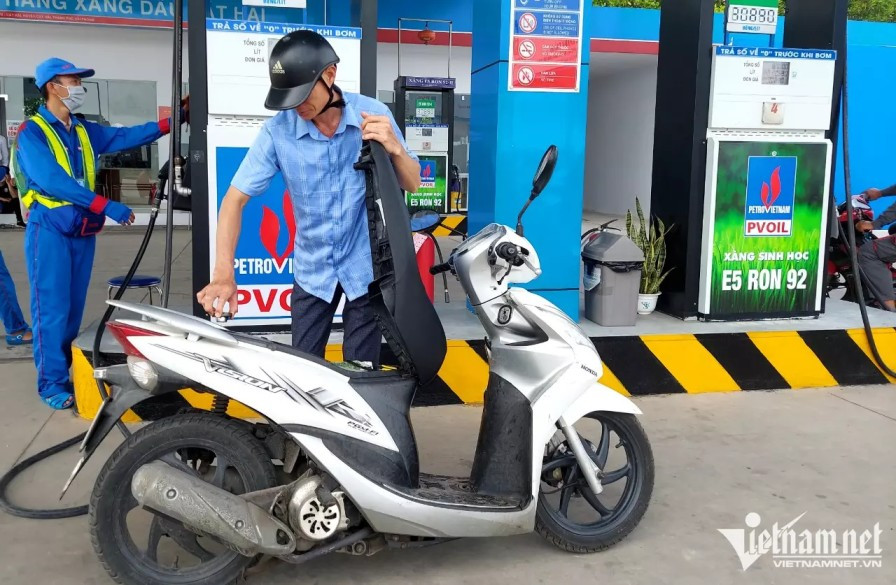
The gasoline pricing mechanism and tax structure in gasoline prices remain a controversial issue among ministries.
In Document 3489/BCT-TTTN dated June 22, 2022, MOIT said petrol accounts for 37-40 percent of the total volume of petroleum products consumed throughout the country and it is not a commodity with a low consumption level.
It is the commodity with the largest number of impacted people because most people use petrol to travel (for motorbikes and gasoline-powered cars, the types of vehicles that are most commonly used in Vietnam today)
MOIT believes that it is necessary to reconsider the view on imposing a luxury tax on petroleum products. These products are essential goods which have a big impact on people’s daily lives and production.
Meanwhile, the Ministry of Finance (MOF) insists on imposing a luxury tax on petroleum products, because the consumption of these products affects the environment. MOIT argues that petrol already bears an environmental protection tax, and there is no need to impose another type of tax.
According to MOIT, the luxury tax rate being applied to petrol products is 7-10 percent, which is a big figure in the petrol price structure (VND2,000-2,500 per liter if considering the current prices), so the luxury tax cuts will be helpful in curbing petrol price increases.
The ministry believes that reducing the luxury tax on petrol is a necessity and this needs to be done soon as Vietnam needs to cut petrol prices to control inflation and help people who are in difficulties after the last two Covid-19 years.
VCCI has a similar opinion. It has proposed that MOF continue to study and assess the possible impact of the removal of luxury tax on petrol and submit a report to the National Assembly at the upcoming session.
MOF has proposed a reduction in luxury tax on petrol. However, the proposal needs to be approved by the National Assembly, but the nearest National Assembly session will only convene in October-November 2022.
MOF doesn’t think that a luxury tax on petrol needs to be removed.
Luxury tax is a type of indirect tax imposed on goods and services the State doesn’t encourage to consume because they harm people’s health (tobacco, liquor, wine); goods that need to be consumed economically (petrol, fossil fuel); and luxury products and services (cars, airplanes, yachts, golf). That is why most countries apply this type of tax.
In Vietnam, petrol began bearing a luxury tax in 1995.
Luong Bang